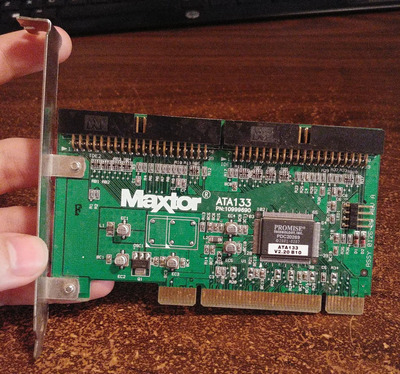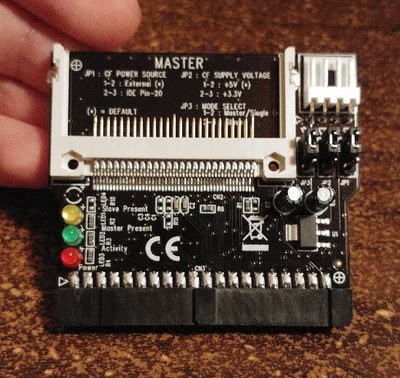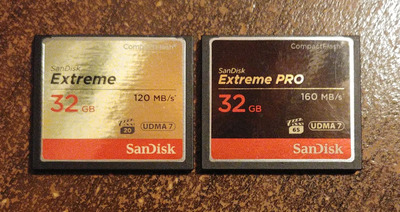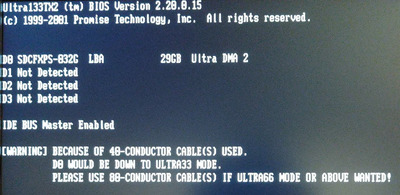First post, by Kahenraz
- Rank
- l33t
When using an IDE-to-CompactFlash adatper with my Promise UltraATA133 TX2 IDE controller I found that it will report that my SanDisk Extreme PRO which is a UDMA7 card is not connected with an 80 pin cable and default to Ultra33 (UDMA2) mode.
This is not a problem with my SanDisk Extreme which recognizes as UDMA6 (ATA133).
So if you want to buy the fastest card for your IDE controller it may not necessarily be compatible. These are my only UDMA7 flash cards.



